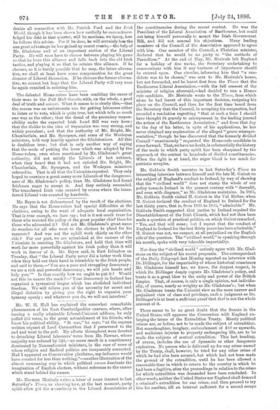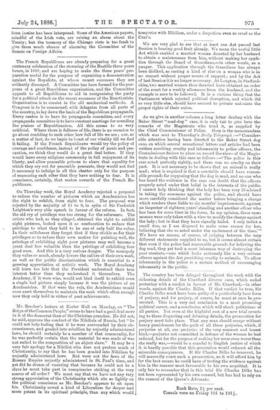There seems to be no great doubt that the Senate
in the United States will approve the Convention with England en- larging the terms of the Extradition Treaty. Merely political crimes are, as before, not to be made the subject of extradition. But manslaughter, burglary, embezzlement of £10 or upwards, and malicious injuries to property endangering life, are to be made the subjects of mutual extradition. This last heading, of course, includes the use of dynamite or other dangerous explosives. No person who is delivered up for any crime named by the Treaty, shall, however, be tried for any other crime of which he had also been accused, but which had not been made the ground of the extradition, until he has been allowed a reasonable time in which to return to the country in which he had been a fugitive, after the proceedings in relation to the crime for which extradition was demanded have been concluded. In other words, neither the United States nor England shall demand a criminal's extradition for one crime, and then proceed to try him for another, till an interval sufficient for a second escape from justice has been interposed. Some of the American papers, mindful of the Irish vote, are raising an alarm about the Treaty ; but the Memory of the Chicago riots is too fresh to give them much chance of alarming the Committee of the Senate on Foreign Affairs.



































 Previous page
Previous page